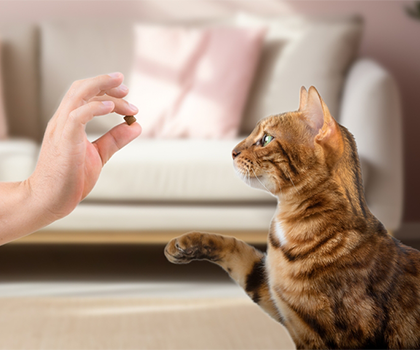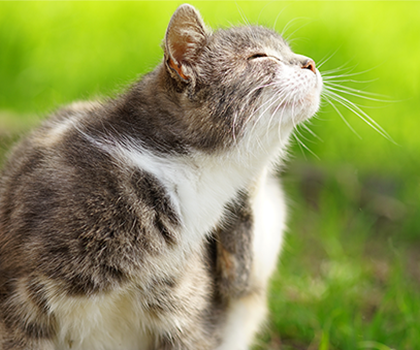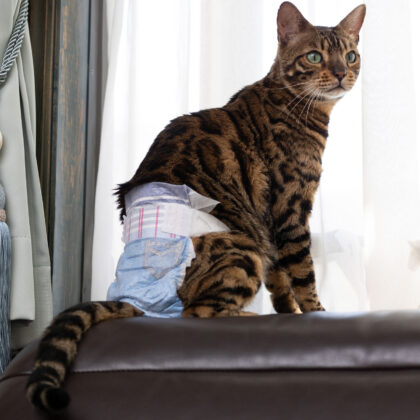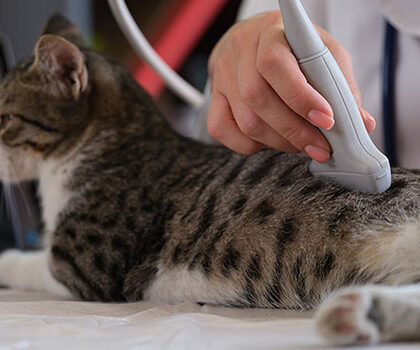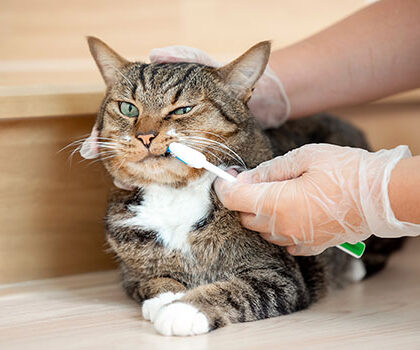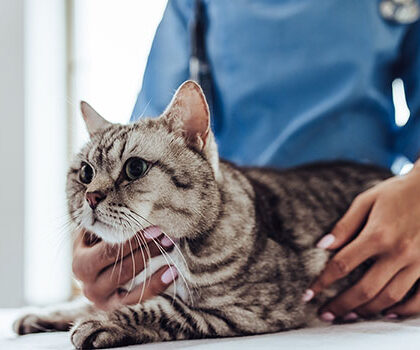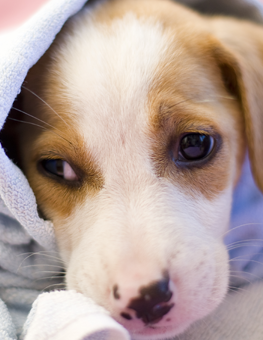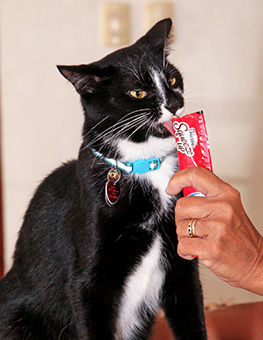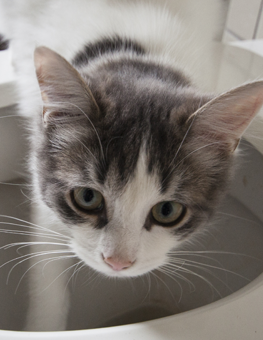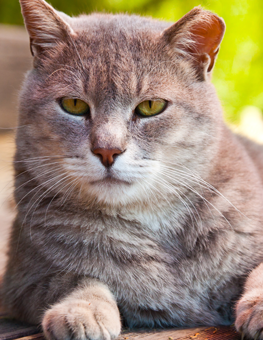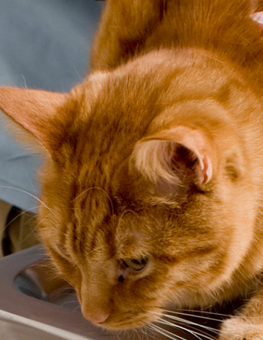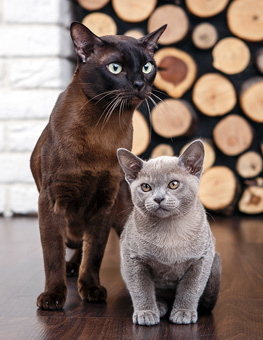Increased Feedings May Decrease Your Cat’s Weight
While it may seem counter-intuitive, feeding overweight cats the same amount of food divided into more frequent and smaller portions can actually help them lose weight, according to a new study.
The cat study, published in the Journal of Animal Science, compiled the findings of Kelly Swanson, Ph.D., and his lab at the University of Illinois College of Agricultural, Consumer and Environmental Sciences. Swanson and fellow researchers disclosed that feeding the cats more often – along with giving them meals containing dietary water – made the cats more active, thus causing them to burn more calories and lose weight.
Swanson, leader of the study, proposed that, besides being good news for owners of obese cats, the study may have positive implications for certain feline diseases.
"I think veterinarians will be interested in this information because it gives them evidence to be able to recommend something to pet owners that could help with feline obesity and diabetes," said Swanson.
"When cats are allowed to feed [freely], it's difficult to prevent obesity," Swanson said. "It is important to identify the right diet. Many owners are accustomed to dumping a pile of food out for multiple cats, just once per day."
Potential Problem Identified
A 2011 study from the Association for Pet Obesity Prevention revealed that most cats and dogs have a weight problem: Some 53 percent of cats and more than 55 percent of dogs were deemed overweight by the researchers – a serious concern.
Here's the breakdown of that 53 percent: Of the 133 adult cats examined by veterinarians, almost one-third were considered overweight and nearly 22 percent clinically obese. This means that there are nearly 50 million overweight cats in the U.S.
"We're seeing a greater percentage of obese pets than ever before," said Ernie Ward, founder of the association.
Obese, in the definition used by the study researchers, means weighing 30 percent more than the norm. Ward noted that obesity in cats can cause the same problems that it does in humans.
"This is troubling because it means more pets will be affected by weight-related diseases such as arthritis, diabetes, high blood pressure and kidney disease," stated Ward.
Pet Owners Can Help
The University of Illinois study pointed to a helpful conclusion: According to Swanson, it's up to pet owners to make sure their cats keep fit.
"It all comes down to energy in and energy out," he said. "If they know they are going to get fed, that's when they are really active, if they can anticipate it."
This post is provided by the pet experts at Hartz.



